The views expressed in our content reflect individual perspectives and do not represent the authoritative views of the Baha'i Faith.
In the previous essay in this short series, we began a psychological and spiritual exploration into one of the darkest and most terrible aspects of human behavior—savagery. Exemplified most recently by brutal wars in several places across the globe, the ISIS crisis in northern Syria and Iraq has focused the world’s attention on savage mass murders, beheadings and sectarian genocide.
When these terrible crimes against humanity occur, it often makes us want to blame a certain ethnic group or religious sect or nationality. But the savage instincts in human beings go much deeper than those affiliations—according to the Baha’i teachings they reside, potentially, in all of us:
…when man does not open his mind and heart to the blessing of the spirit, but turns his soul towards the material side, towards the bodily part of his nature, then is he fallen from his high place and he becomes inferior to the inhabitants of the lower animal kingdom. In this case the man is in a sorry plight! For if the spiritual qualities of the soul, open to the breath of the Divine Spirit, are never used, they become atrophied, enfeebled, and at last incapable; whilst the soul’s material qualities alone being exercised, they become terribly powerful — and the unhappy, misguided man, becomes more savage, more unjust, more vile, more cruel, more malevolent than the lower animals themselves. All his aspirations and desires being strengthened by the lower side of the soul’s nature, he becomes more and more brutal, until his whole being is in no way superior to that of the beasts that perish. Men such as this, plan to work evil, to hurt and to destroy; they are entirely without the spirit of Divine compassion, for the celestial quality of the soul has been dominated by that of the material. If, on the contrary, the spiritual nature of the soul has been so strengthened that it holds the material side in subjection, then does the man approach the Divine; his humanity becomes so glorified that the virtues of the Celestial Assembly are manifested in him; he radiates the Mercy of God, he stimulates the spiritual progress of mankind, for he becomes a lamp to show light on their path. – Abdu’l-Baha, Paris Talks, pp. 97-98.
The material quality of the soul, as Abdu’l-Baha points out, can lead us into a savage, brutal existence. Psychologists know that when those qualities become socialized in a group or even a lawless mob, they tend to reinforce each member and contribute to an aggressive, violent and ruthless group identity. Professor Ian Robertson of Trinity College in Dublin, who has studied these tendencies toward brutality in humans, says that submersion into a group identity can produce enormous savagery:
When the State breaks down, and with it law and order and civic society, there is only one recourse for survival – the group. Whether defined by religion, racial, political, tribal or clan – or for that matter by the brute dominance of a gang-leader – survival depends on the mutual security offered by the group.
War bonds people together in their groups and this bonding assuages some of the terrific fear and distress the individual feels when the state breaks down. It also offers self-esteem to people who feel humiliated by their loss of place and status in a relatively ordered society. To the extent that this happens, then individual and group identities partially merge and the person’s actions become as much a manifestation of the group as of the individual will. When this happens, people can do terrible things they would never have imagined doing otherwise: individual conscience has little place in an embattled, warring group, because the individual and group selves are one so long as the external threat continues. It is groups which are capable of savagery, much more than any individual alone.
You can see it in the faces of the young male Islamic State militants as they race by on their trucks, black flags waving, broad smiles on their faces, clenched fists aloft, fresh from the slaughter of infidels who would not convert to Islam. What you can see is a biochemical high from a combination of the bonding hormone oxytocin and the dominance hormone testosterone. Much more than cocaine or alcohol, these natural drugs lift mood, induce optimism and energise aggressive action on the part of the group. And because the individual identity has been submerged largely into the group identity, the individual will be much more willing to sacrifice himself in battle – or suicide bombing, for that matter. Why? – Because if I am submerged in the group, I live on in the group even if the individual “me”, dies.
This loss of the individual will—and of the individual human conscience—can occur quickly and completely in a group context. When we surrender our own humanity to any violent group—a militia, a mob, an army, a gang, a sect–we put ourselves at risk of losing our own humanity.
I have personally witnessed this mob mentality and the savagery it can unleash–among soldiers and guerillas on both sides during the Vietnam war; in lawless urban rioting in Los Angeles and Manila; in the barbaric behavior of government-sponsored death squads during the civil war in El Salvador; and in the terrible war crimes committed by the Serbian and then the Albanian forces during and after the ethnic cleansing in Kosovo. After seeing those things happen I realized that just about everyone, if cruelty and hardship and inhumane depravity push them far enough, can descend into the spiritual morass of mob mentality and the loss of their human conscience.
If you’re thinking “Not me—I’m a good person! I would never do those things!” then you’re not alone. Just about everyone whose behavior descends into savagery probably once felt the same way about themselves, too, until the circumstances of their lives made them feel that they had no choice.
The only thing I know of that can prevent such a descent in the face of extreme hardship is a clear and unshakeable Faith.
You May Also Like
Comments



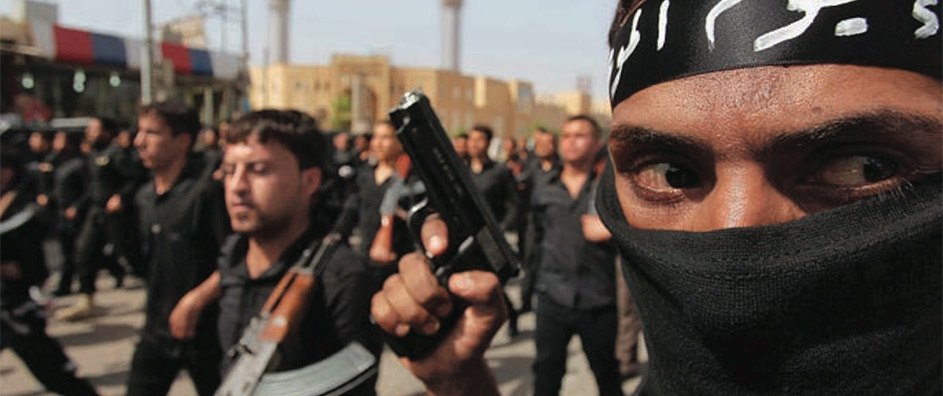
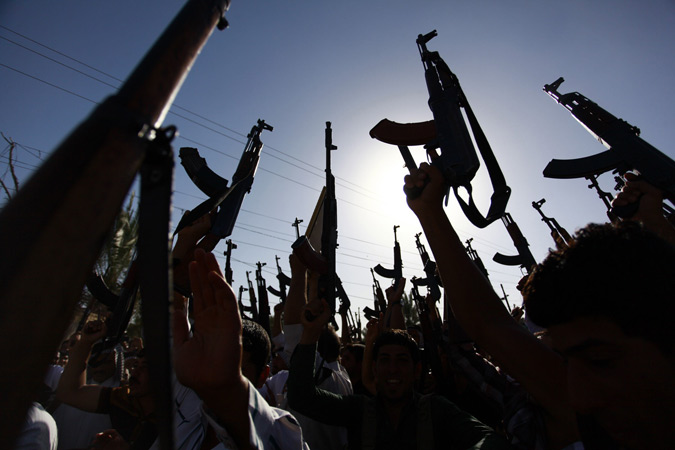

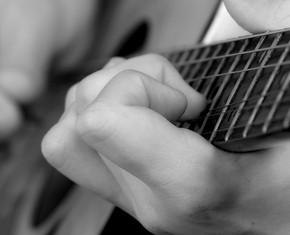
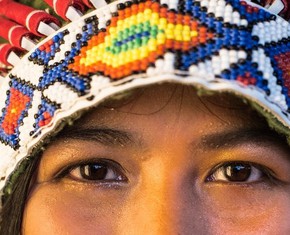
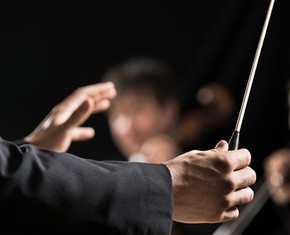









Of course, that was the vision of a young man in a different time. Clearly, the understanding has changed and we still ...have much work to do. Now, I think this: Before we get to the point of laying down our arms, we have to learn what "balance" and "moderation" mean. We seem to have lost that middle ground that allows divergent opinions and beliefs to coexist. Instead, we seem to relish living on the edges, the extremes, where no tolerance of "the other" is tolerated or even allowed.
We have much growing to do as a species. I am thankful I have the Divine Word to help me make sense of the senseless acts that fill my news feed.